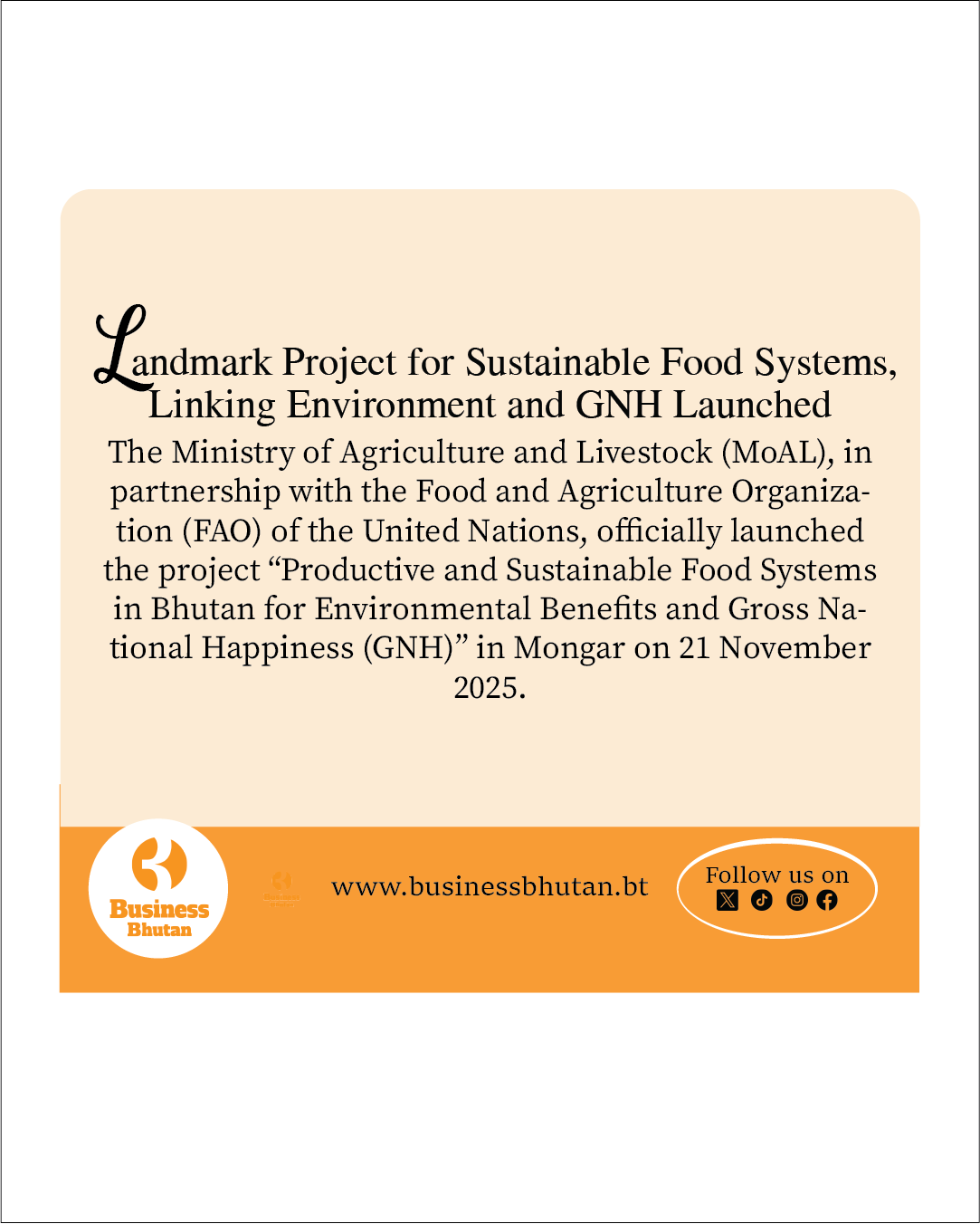DGPC MD says Bhutanese do not have the habit of saving energy
Many of us have seen flats and houses with lights on, when the entire family or residents have gone out for dinner or to watch the latest blockbuster. We have also become accustomed to leave our heaters, especially the panel heaters on when going for work, so that our rooms are warm and cosy when we return. And when the government has to pay, we hardly think about the expenses of electricity.
Dasho Chhewang Rinzin, Managing Director (MD), Druk Green Power Corporation (DGPC) spoke about this during the Bhutan Innovation Forum (BIF) last week at Pangbisa, Paro. Though Dasho did not mention about the costs, he said: “We have also taken our electricity for granted, actually, because it’s cheap. People just keep the lights on, keep the heaters on, whether it’s necessary or not necessary.”
Dasho underlined that Bhutan is new to energy saving. “We are trying to change that mentality, and there’s a lot of work being done to save part of that energy that we consume.” Dasho informed that with the help of some of partners, Bhutan is moving to solar heating systems, solar water heating systems, rooftop solar, better housing cooling systems, better housing construction and others.
Speaking further, Dasho said that 80% of our energy is consumed by industries. 15 to 20% is consumed by individuals at our homes. He mentioned that the first place would be to go to the industries for energy saving. “So we’ll have to go to the industries first, because that is where the 80% is taking place.” He said a lot of work is being done on bringing in new technologies. “And we hope that the Western countries, which have the technologies, will provide those technologies to us at cheaper rates than that which is available at the present juncture.”
A Bhutanese participant at the Forum, Tshering Wangchuk, said the DGPC MD is “absolutely right.” “I studied abroad and fortunately know the importance of energy saving. I have neigbours in Thimphu who complain everytime the electricity bill reaches them. They compare it with me and say the Bhutan Power Corporation has made a mistake, not realizing that the never put off their lights even during the day time. We have a lot to learn.”
Wangchuk added that people in urban areas have to think of those in rural Bhutan. “People in the villages live without lights and they are not aware that a major share of the resource is hijacked by those in urban Bhutan.”
There are alternatives, which would save electricity. Experts say that panel heaters use about 2000 watts or 2Kw of electricity per hour, costing about 72 cents per hour, and are one of the most energy-efficient heating systems.
On the other side, a home air conditioner can use about 3,000 watts of electricity an hour. If you have it on all day, that’s 72,000 watts of electricity a day. However, running it on the ‘fan-only’ mode will only consume about 750 watts an hour.
An electrical engineer spoke about it in relation to rural Bhutan where houses are lit by 2.3, bulbs. “In fact the energy utilization of a bulb is not based only on its rating, but it is based on average daily usage. In general, the bulb is used on average 4 hours per day. Hence, an incandescent bulb would consume 100 to 400 Wh, a CFL 100 Wh, and an LED 8 to 72 Wh per day. But, these values are based on the assumption that each bulb is used 4 hours per day.” He said that though Bhutanese are beginning to buy LED bulbs, some cannot afford it due to the cost. “What about some subsidies?”
Meanwhile, the World Bank supports countries to ensure that the transition to more diversified and cleaner sources of energy meets growing demand, brings economic growth, and creates jobs on a more livable planet. Energy efficiency and renewable energy can mitigate climate change and ensure energy reliability and security.
“The government and individuals need to harness alternative sources of energy, like solar power. I think many households can use solar power as the source of energy we require and it is not expensive,” Tandin Wangchuk, an entrepreneur based in Thimphu said.
By Ugyen Tenzin, Thimphu




![Fresh Beginnings: Pasakha Vendors Gear Up for New Vegetable Market - Duplicate - [#16963] Fresh Beginnings: Pasakha Vendors Gear Up for New Vegetable Market - Duplicate - [#16963]](https://businessbhutan.bt/wp-content/uploads/2025/11/Asset-200.png)











